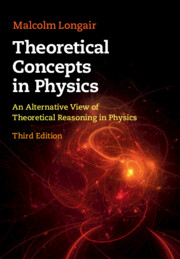Book contents
- Frontmatter
- Dedication
- Contents
- Preface and Acknowledgements
- 1 Introduction
- Case Study I The Origins of Newton’s Laws of Motion and of Gravity
- 2 From Ptolemy to Kepler: The Copernican Revolution
- 3 Galileo and the Nature of the Physical Sciences
- 4 Newton and the Law of Gravity
- Case Study II Maxwell’s Equations
- Case Study III Mechanics and Dynamics: Linear and Non-linear
- Case Study IV Thermodynamics and Statistical Physics
- Case Study V The Origins of the Concepts of Quantisation and Quanta
- Case Study VI Special and General Relativity
- Case Study VII Cosmology and Physics
- Author Index
- Subject Index
4 - Newton and the Law of Gravity
from Case Study I - The Origins of Newton’s Laws of Motion and of Gravity
Published online by Cambridge University Press: 27 March 2020
- Frontmatter
- Dedication
- Contents
- Preface and Acknowledgements
- 1 Introduction
- Case Study I The Origins of Newton’s Laws of Motion and of Gravity
- 2 From Ptolemy to Kepler: The Copernican Revolution
- 3 Galileo and the Nature of the Physical Sciences
- 4 Newton and the Law of Gravity
- Case Study II Maxwell’s Equations
- Case Study III Mechanics and Dynamics: Linear and Non-linear
- Case Study IV Thermodynamics and Statistical Physics
- Case Study V The Origins of the Concepts of Quantisation and Quanta
- Case Study VI Special and General Relativity
- Case Study VII Cosmology and Physics
- Author Index
- Subject Index
Summary
Newton codified the laws of motion and gravity, their primitive forms being enunciated in 1665-66. Using Kepler's laws, he discovered the inverse square law of gravity and went on to show that gravity is the same force which holds the planets in their orbits, as well as that which causes apples to fall to the ground. Newton was a brilliant experimentalist who invented the Newtonian, reflecting telescope which eliminated the aberrations of refracting telescopes such as those built by Galileo. Newton's researches culminated in the publication of his revolutionary Principia Mathematica of 1687. He devoted as much effort to chemical (or alchemical) analyses and to the interpretation of ancient texts and the scriptures. He was also the inventor of differential and integral calculus.
Keywords
- Type
- Chapter
- Information
- Theoretical Concepts in PhysicsAn Alternative View of Theoretical Reasoning in Physics, pp. 48 - 72Publisher: Cambridge University PressPrint publication year: 2020



